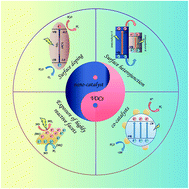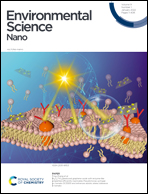A critical review on surface-modified nano-catalyst application for the photocatalytic degradation of volatile organic compounds
Abstract
Surface modification of nano-catalysts has gained significant attention due to their outstanding photocatalytic performance with minimum secondary pollution. Photocatalytic oxidation (PCO) is a promising technology for removing volatile organic compounds (VOCs) due to its higher activity with minimum secondary pollution. In this review, we have selected literature from the Web of Science database for nearly 10 years, with most of our sources spanning the past 5 years. The current review summarizes the recent reports of the nano-catalyst surface modification technology, including overcoming the internal and external limitations of nano-catalysts and improving the method of photocatalytic degradation of VOCs. Additionally, we found that surface modification greatly enhances the catalytic performance of the nano-catalyst, which is beneficial for the degradation of VOCs. There are some limitations including low catalytic activity and catalyst stability. So, in future research, new methods of preparing catalysts and improving their overall catalyst performance should be managed and paid more attention.

- This article is part of the themed collection: Best Papers 2022 – Environmental Science: Nano


 Please wait while we load your content...
Please wait while we load your content...